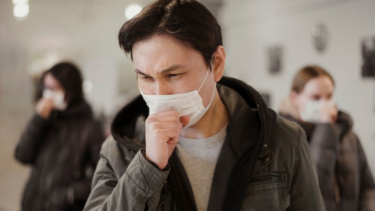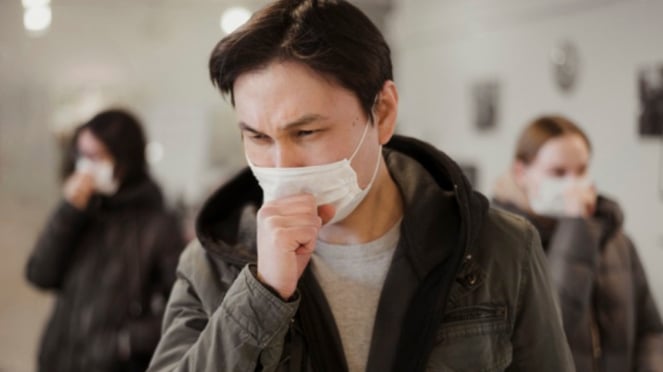The Different Treatment Between Dry Cough and Phlegm Cough
- Freepik/drobotdean
Jakarta – Coughing is a common symptom that often interferes with daily life. However, do you know that there are two types of cough that need to be distinguished: cough with phlegm and dry cough?
While both involve the process of coughing, the differences in their characteristics and causes are crucial to understanding how to treat them.
Phlegm cough is a coughing condition in which mucus or phlegm is produced and resides in the respiratory tract, especially in the throat or lungs.
When you cough up phlegm, the mucus flows down the throat and causes a cough reflex as the body attempts to clear and expel it from the respiratory system.
Ilustrasi batuk.
- Freepik/freepik
Coughing up phlegm can be the body's natural defense mechanism to remove dirt, bacteria, viruses or other foreign particles from the lungs and respiratory tract.
Usually, a cough with phlegm occurs due to a viral or bacterial infection, inflammation of the respiratory tract, allergies, or irritation from smoke or air pollution.
A dry cough, on the other hand, is a type of cough where no mucus or phlegm is produced and present in the respiratory tract, especially in the throat or lungs. In a dry cough, the throat feels dry and irritated, causing a cough reflex as the body's response to the irritation.
A dry cough may cause discomfort or annoyance, but no mucus is produced when coughing. Dry cough is often irritating and can be triggered by a variety of factors, such as viral infections, allergies, smoke, air pollution, cold weather, or consumption of certain medications.
Not many people know that the treatment of cough with phlegm and dry cough are different, as following:
Treatment of dry cough
1. Stay hydrated: Drink plenty of fluids to keep the throat moist and reduce irritation.
2. Cough suppressants: Over-the-counter cough suppressants or lozenges may help control the cough reflex.
3. Honey: Consuming honey or warm beverages with honey can soothe the throat and reduce coughing.
4. Avoid irritants: Stay away from smoke, strong odors, and other irritants that may worsen the cough.
5. Treat underlying causes: If the dry cough is due to allergies or GERD, addressing these conditions can help alleviate the cough.
Treatment of Cough with Phlegm (Productive Cough)
1. Stay hydrated: Like with dry cough, drinking plenty of fluids helps to thin and loosen the mucus, making it easier to expel.
2. Expectorants: Over-the-counter expectorants can help thin the mucus and facilitate its removal.
3. Steam inhalation: Inhaling steam from a bowl of hot water can help soothe the airways and loosen the phlegm.
4. Gargling with saltwater: This can alleviate throat irritation and reduce the urge to cough.
5. Rest: Get sufficient rest to allow your body to recover and fight off the infection.
It's important to understand the type of cough you have as the treatment for a cough with phlegm and a dry cough are different. If the cough is prolonged or accompanied by other concerning symptoms, you should visit a doctor or healthcare professional for proper treatment.



























